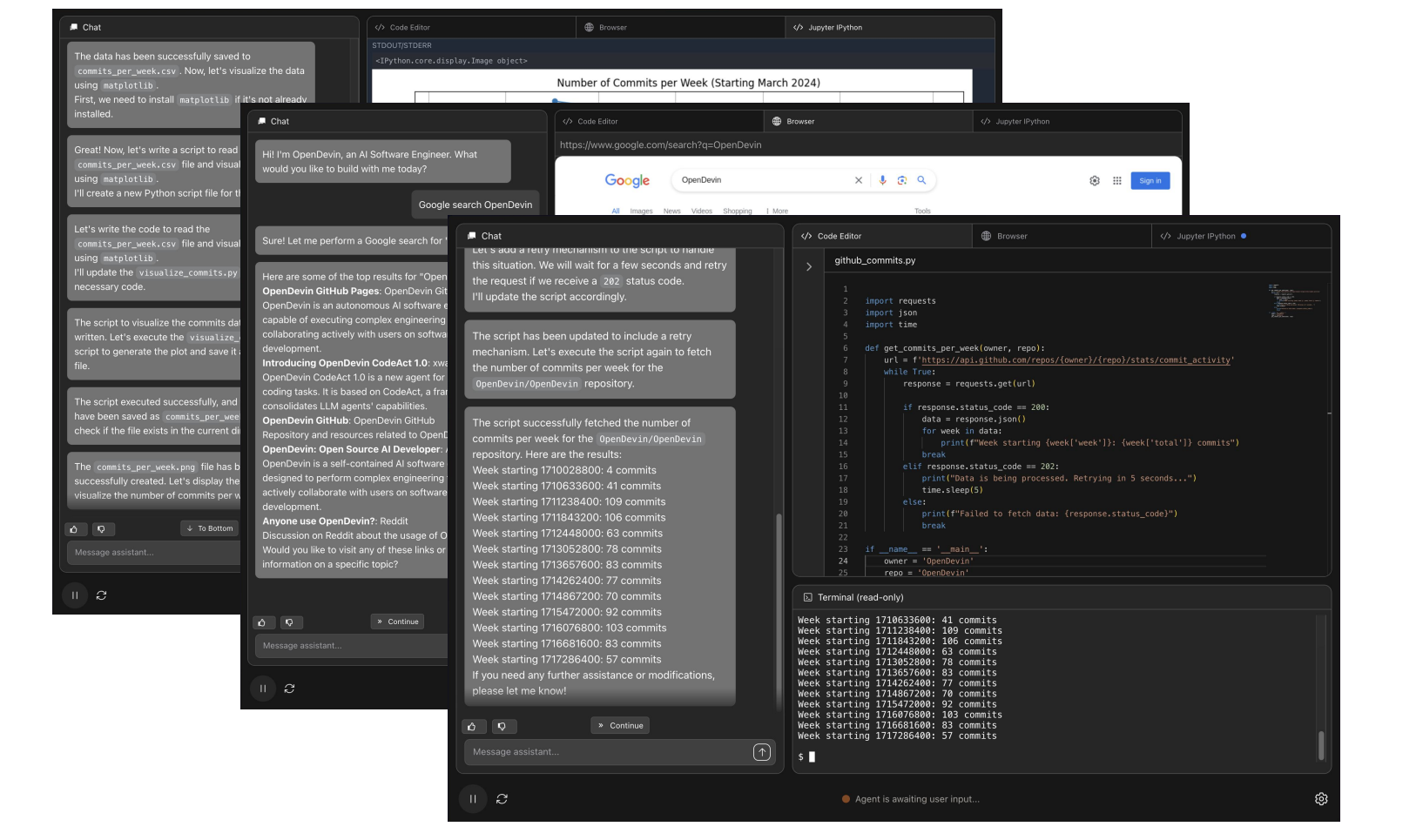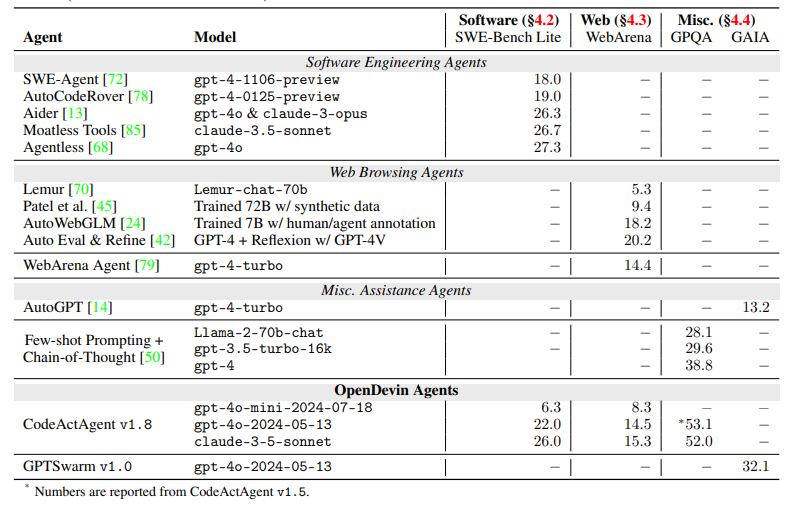Agents might be the next frontier of AI and OpenDevin wants to open source them

OpenDevin is an open-source platform that allows developers to create AI agents capable of interacting with other applications through software interfaces.
The platform, developed by researchers from several academic and commercial institutions, allows agents to interact with their environment through software interfaces, similar to how human developers work. It offers a flexible architecture, a sandbox environment, and evaluation tools. The name OpenDevin is likely inspired by the commercial AI programming tool "Devin".
OpenDevin consists of three main components: an agent abstraction, an event stream for tracking actions and observations, and a runtime environment for executing agent actions.

The platform provides a secure sandbox where agents can run code and access a bash shell, a Jupyter notebook server, and a web browser. This setup allows agents to perform complex software development and web-based tasks.
OpenDevin already includes several agents, such as a generalist CodeAct agent and a specialized web browsing agent. In initial benchmarks, OpenDevin agents show competitive performance in various tasks. Users can create "micro-agents" for their own specific tasks.

The platform also enables collaboration between multiple agents. For example, a generalist agent can delegate tasks to specialized agents. Users interact with agents through a chat-based interface that visualizes the agent's current actions and provides real-time feedback.
A unique feature of OpenDevin is the AgentSkills library, which contains commonly used functions such as editing files or reading images using vision language models. The library can be extended with new skills.
The developers designed OpenDevin as a community project. The source code is available on GitHub under the MIT license, allowing for commercial use. Plans include improved support for multimodality, more powerful agents, and a more stable runtime environment.
Agents could be the next frontier for AI
The goal of OpenDevin is the long-term development of safe and useful AI agents. Leading AI companies like Google Deepmind and OpenAI believe that AI agents - programs that act and interact with each other - will be the next major step in AI development, following models with advanced logic capabilities.
But current agent approaches still have significant room for improvement, as OpenDevin's benchmarks and similar systems show. Microsoft's AI CEO recently predicted that it will take two more generations of AI models before reliable AI agents become a reality.
AI News Without the Hype – Curated by Humans
As a THE DECODER subscriber, you get ad-free reading, our weekly AI newsletter, the exclusive "AI Radar" Frontier Report 6× per year, access to comments, and our complete archive.
Subscribe nowAI news without the hype
Curated by humans.
- Over 20 percent launch discount.
- Read without distractions – no Google ads.
- Access to comments and community discussions.
- Weekly AI newsletter.
- 6 times a year: “AI Radar” – deep dives on key AI topics.
- Up to 25 % off on KI Pro online events.
- Access to our full ten-year archive.
- Get the latest AI news from The Decoder.